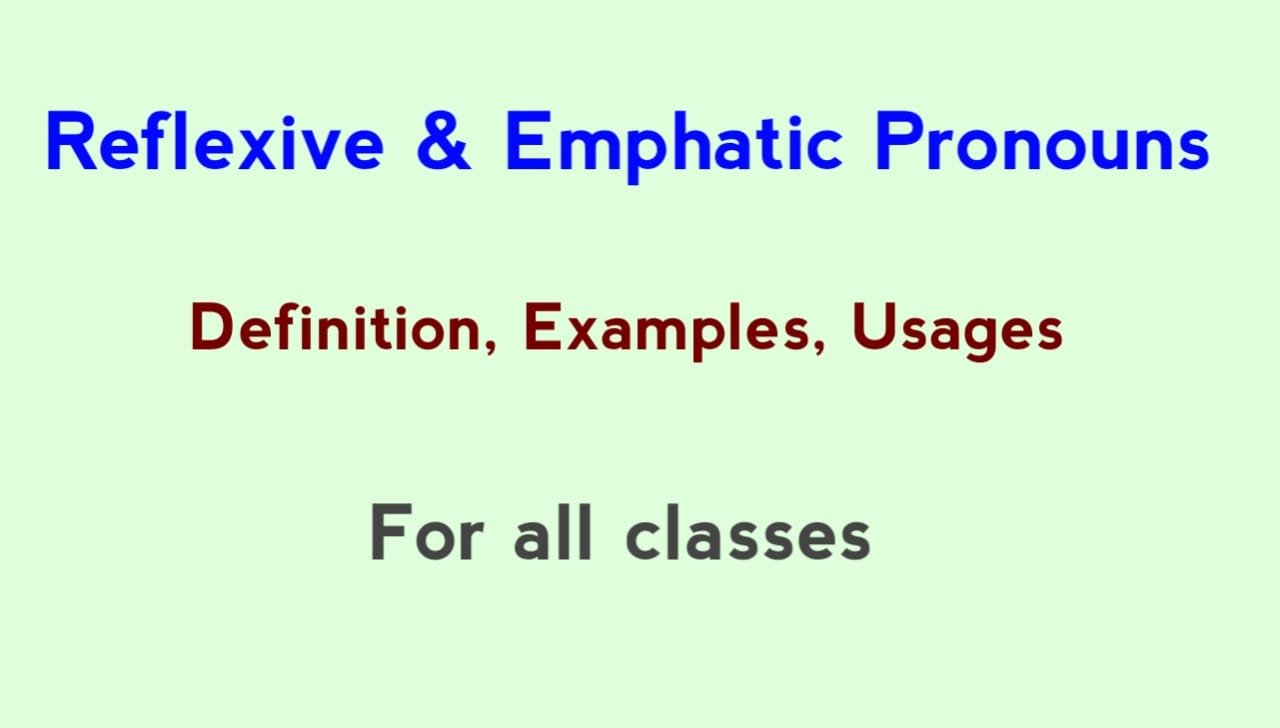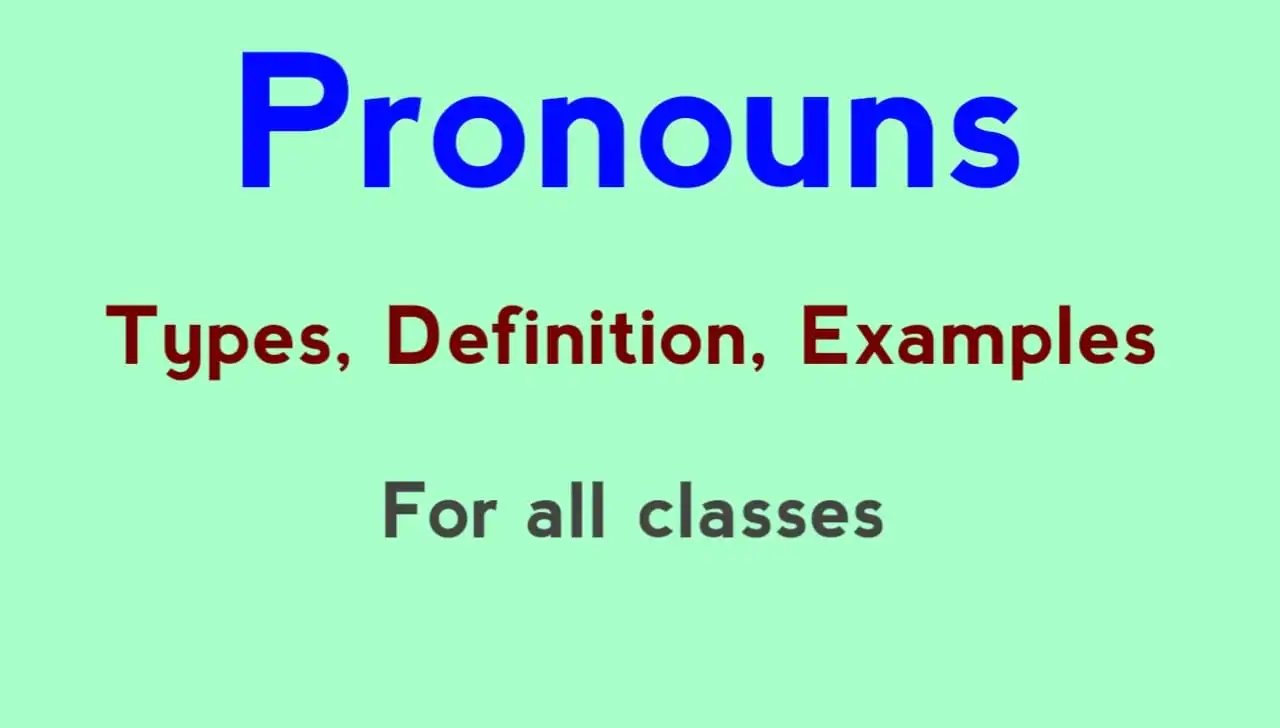Indefinite Pronouns: Definition, Usage, Examples are important in English Grammar. These Pronouns refer to persons or things in a general way.
Indefinite Pronouns
Indefinite Pronouns do not refer to any particular person or things like the demonstrative but refer to persons or things in a general way: Some, none, many, any, another, others, all, one, much, little, both, anyone, anybody, everyone, everything, nobody, somebody, something, nothing, few.
Examples of Indefinite Pronouns
(1) everybody wants to be happy.
(2) He emptied every one of the bottles of whiskey.
(3) I saw another boy.
(4) Some men came to me.
(5) Any man can do it.
People also read:
| Personal Pronoun | Interrogative Pronoun |
| Possessive Pronoun | Distributive Pronoun |
| Demonstrative Pronoun | Reflexive & Emphatic Pronoun |
| Relative Pronoun | Indefinite Pronoun |
Definition, Usage, Examples of Indefinite Pronouns
(a) Most of these indefinite pronouns are also used as adjectives :
(1) Any man can do it.
(2) Some men came to me.
(3) I saw another boy.
(b) “ one”, “ body” and “thing” are sometimes compounded with indefinite pronouns which are then called Compound Indefinite Pronouns: Anyone, nothing, anything, anybody, etc. In “any one”, “any” is an adjective and “one” is numeral:
(1) Anyone of them will do.
(c) “Everyone” means the same as “everybody”; “every one” is usually used to refer to things not people :
(1) Everyone wants to be happy.
(2) He emptied every one of the bottles of whisky.
(d) “Any” as a pronoun is used only in interrogative and negative sentences. It may be both singular and plural and may refer to both persons and things :
(1) Have you seen any man/men there?
(2) I want a few chairs; can you give me any?
(e) “Some” As a pronoun “some” may be used for both persons and things :
Check also:
(1)Some say he will come.
(2)He has many books; some are new; some old.
It is used in both singular and plural :
(1)Some of this sugar is bad.
(2)Some of the mangoes are rotten.
(f) “One”, as an indefinite personal pronoun, one is always followed by one, one’s, and one in the (Nominative, Possessive, and Objective) and not by he, his, and him :
(1) One must do one’s duty.
(2) One does not know when one will die.
When “every”, “no” stands before “ one” we can use “his”,” him” or “ he” after it :
(1) Everyone did his duty.
(2) No one knows when he will do it.
(g) “All” can be used for both singular and plural :
(1) All is not nice.
(2) All of them are not honest.
(h) “None” is used both as singular and plural :
(1) None of the boys was good.
(2) None but the fools have ever believed.






